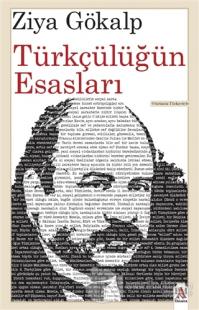

Mehmet Ziya Gökalp (23 March 1876 – 25 October 1924) was a Turkish sociologist, writer, poet, and politician.


Aside from a fragmented summary of Gökalp’s philosophies and the development of early Turkish nationalism, there is little of value to be found in this book.Branko Merxhani, Sati' al-Husri, Mustafa Kemal Atatürk While some readers might find it interesting as a collection of thoughts related to Atatürk’s program of reforms, all of the ideas present in The Principle of Turkism have been better expressed, academically and propagandistically, in other works. Even a little more attention to editing would have helped facilitate cohesiveness, and provided a better presentation of the totality of Gökalp’s ideas, but instead this book reads like a handful of articles patched together and submitted as a dissonant exercise in propaganda. Major faults, including questionable uses of evidence that lead to overstated conclusions, odd segues, and the overall scattered and repetitive nature of this work make it difficult to comprehend the author’s ideas as a coherent whole. As noted in translator Robert Devereux’s preface, Gökalp’s strengths were as a purveyor of ideas, not as a writer, and the disjointed nature of much of The Principles of Turkism makes that clear. The remainder of Gökalp’s work consists of descriptions of his vision of Turkish nationalism and a modern Turkey, as well as how the elites should go about transforming these aspirations into reality. It is the job of the elites, therefore, to receive a cultural education from the people and use it to introduce civilization into their lives. He then divides societies into “elites” and “the people”, claiming that the former understand “civilization”, while the latter bring “culture” to the table. Turkey, on the other hand, will be positioned for success if it situates itself entirely within Western civilization. Defining a nation as “composed of individuals who share a common language, religion, morality and aesthetics, that is to say, who have received the same education”, Gökalp proceeds to outline a program of Turkism intended to bring Turkey into modernity and make it a significant player on the global scene.Īfter wading through some definitional issues, Gökalp engages in a discussion about the failures of Ottomanism, which culminates in the argument that a “nation is either Eastern or Western” and that the empire’s Tanzimat reforms could never have achieved success because they refused to let go of Eastern civilization. Published one year before his death, today it stands as a framing document for Mustafa Kemal Atatürk’s development of modern Turkey and as a rallying call and philosophical foundation for Turkish nationalism. Ziya Gökalp’s The Principles of Turkism is, in essence, a collection of the teachings and philosophies that the author had espoused over the course of his life.


 0 kommentar(er)
0 kommentar(er)
